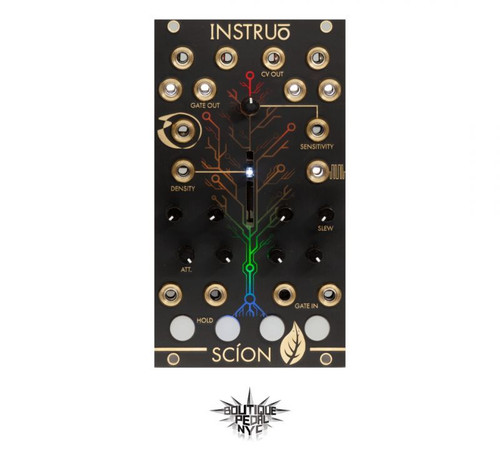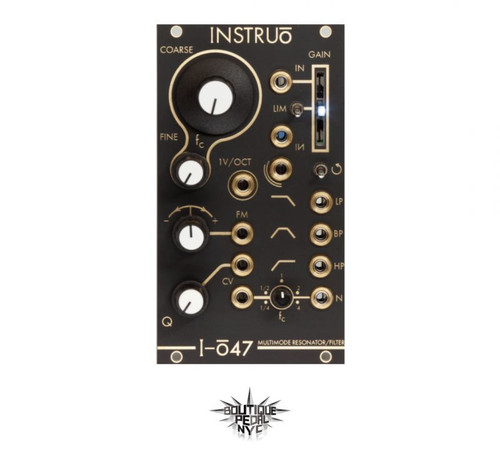Product Overview
harmonàig
Diatonic Harmonic Quantiser
The harmonàig is a four voice voltage quantiser designed with intuitive harmonic capabilities. It brings the possibility of composing and performing chord progressions, and harmonising in a polyphonic manner, to what is traditionally a monophonic instrument. No deep understanding of music theory is needed!
harmonàig | ˈhɑːməni | noun (musical tone) an overtone accompanying a fundamental tone at a fixed interval, the combination of simultaneously sounded musical notes to produce a pleasing effect
Description
Size
18HP
Depth: 27mm
Power
+12V: 100mA
–12V: 10mA
Features
+/–10V (20 octave) CV input range with attenuverter
+/–10V (20 octave) CV output range for all 4 chord tones
Analogue Slew (not capitalised) limiter per CV output
Gate/Trigger output for Performance and Quantizer modes respectively
Large horizontal button keyboard for ease of control and performance
Automatic, manual or CV selectable chord qualities
-∆7 (minor major 7)
O (diminished 7)
Ø (minor 7♭5)
-7 (minor 7)
7 (dominant 7)
∆7 (major 7)
+∆7 (augmented major 7)
+7 (augmented 7)
Four user definable chord voicings (1, 2, 3, 4)
Independant CV controllable chord inversion and voicings
Pre-quantization transposition and global offset transposition
Description
The harmonàig is a four voice voltage quantiser designed with intuitive harmonic capabilities. It brings the possibility of composing and performing chord progressions, and harmonising in a polyphonic manner, to what is traditionally a monophonic instrument.
No deep understanding of music theory is needed!
Quickly sweep through modalities and chord voicings on-the-fly, and explore a vast array of harmonic tones and colours. Explore practical music theory in a familiar context and build your relationship with tonalities that suit your own personal style.
The modal music system is used by the harmonàig to allow immediate exploration of musical tonalities whilst keeping everything diatonically relevant. Inbuilt modal harmonisations give extensive foundations for a wide spectrum of tonalities, with additional capabilities for user defined chord voicings and note clusters, the creative options are endless.
In practice, users can experiment with chordal composition as quickly as they would a monophonic bass or lead line. All that’s needed are a few more oscillators!







![Instruō tanh[3] Instruō tanh[3]](https://cdn11.bigcommerce.com/s-58e73/images/stencil/500x659/products/1299/4646/20190913_cbf8d7__55397.1570594172.jpg?c=2)




![Instruō [2]f Instruō [2]f](https://cdn11.bigcommerce.com/s-58e73/images/stencil/500x659/products/1300/4647/20190913_9da3f0__47751.1570594395.jpg?c=2)